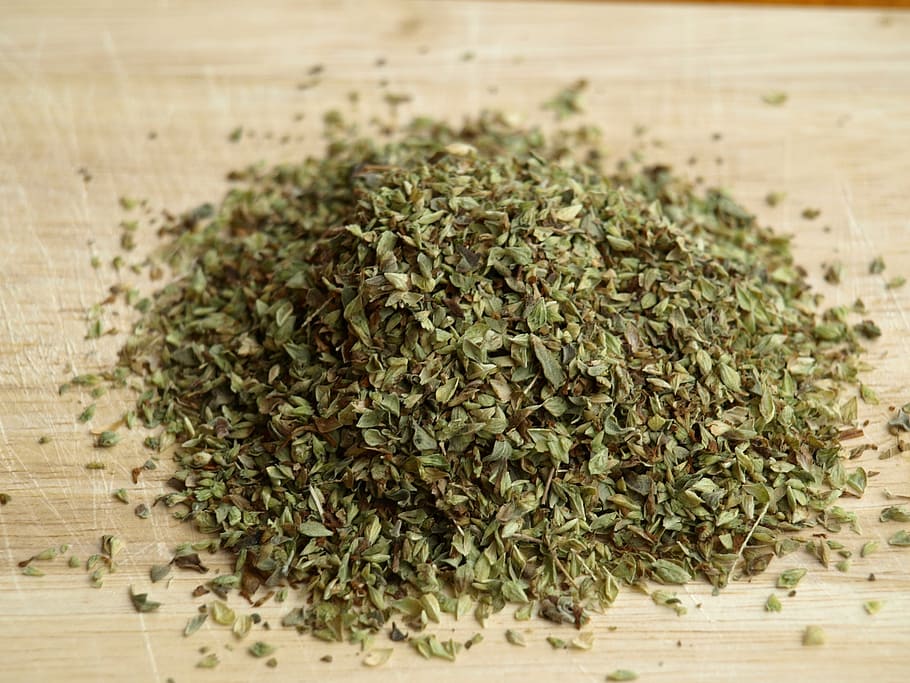Origanum vulgare

Oregano (Origanum vulgare) is an aromatic herb of the labiatae family, native to the Mediterranean. It is a popular spice in cooking, appreciated for its distinctive flavor and aroma. But beyond its culinary uses, oregano has a wide range of medicinal properties, which are mainly related to the fight against some digestive problems such as abdominal pain and intestinal spasms. However, it is important to know both its benefits and its possible contraindications for proper use.
Properties of oregano:
Antioxidant:
Oregano is recognized for its powerful antioxidant properties, which are due to its content of compounds such as rosmarinic acid and flavonoids. These antioxidants help neutralize free radicals in the body, which can cause oxidative stress and cellular damage. By consuming oregano, both fresh and dried, it helps us protect the body’s cells and reduce the risk of diseases related to oxidative stress, such as heart disease, cancer and neurodegenerative diseases. Incorporating oregano into your diet regularly can be a delicious way to take advantage of its antioxidant properties and promote better overall health.
Antimicrobial:
Oregano and its antimicrobial properties, thanks to compounds such as carvacrol and thymol present in its essential oil. These components have the ability to fight harmful bacteria and fungi in the body. Carvacrol, in particular, is effective against bacteria such as Escherichia coli and fungi such as Candida albicans. This antimicrobial ability of oregano makes it valuable for both internal and external health.
It can be used in various ways, such as in teas for digestive problems, in diluted essential oil for topical applications on the skin, or simply as a seasoning in foods to take advantage of its antimicrobial properties.
Anti-inflammatory:
Oregano as an anti-inflammatory, thanks to compounds such as rosmarinic acid and the flavonoids it contains, these components help reduce inflammation in the body by inhibiting the production of pro-inflammatory molecules. Rosmarinic acid, in particular, has significant anti-inflammatory effects by blocking enzymes involved in inflammatory responses. Therefore, regular consumption of oregano, whether in the form of an infusion, as a seasoning, or in essential oil, is useful in reducing inflammation in the body and alleviating conditions such as arthritis, muscle pain, and other inflammatory disorders.
Digestive:
Oregano, due to its digestive properties, is valuable in promoting good gastrointestinal health. Its active compounds, such as carvacrol and thymol, have beneficial effects on the digestive system by stimulating the production of digestive enzymes.
This improves the digestion of food and helps relieve symptoms such as bloating, gas, and stomach discomfort. In addition, regular consumption of oregano can stimulate bile flow, contributing to more efficient digestion of fats. Whether in the form of an infusion after meals or as a seasoning in dishes, oregano can be a beneficial addition to improve digestive health and promote a healthy digestive system.
Analgesic:
Oregano also has analgesic properties that help relieve pain. Its active compounds, such as carvacrol and thymol, have effects that can block the sensation of pain in the body. These compounds work to inhibit the activity of certain enzymes involved in the transmission of pain signals. Additionally, oregano can have a calming effect on inflamed muscles and tissues, contributing to its ability to relieve pain. Whether used as an essential oil applied topically or consumed as an infusion, oregano can be useful for relieving muscle pain, headaches, and other types of discomfort.
Immune System Strengthening
Oregano is an herb that helps strengthen the immune system due to its content of beneficial nutrients and compounds. This herb is a good source of vitamins A, C, and E, as well as minerals such as iron and zinc, all of which are crucial for optimal immune system function. Vitamin C, for example, is known for its role in the production of white blood cells, which are important in fighting infections and diseases. Vitamin A is essential for maintaining the integrity of the body’s mucous membranes, which act as the first line of defense against pathogens. Zinc is essential for the development and function of immune cells. Additionally, oregano contains compounds such as rosmarinic acid and flavonoids, which have antioxidant and anti-inflammatory properties. These compounds help protect the body’s cells against oxidative damage and reduce inflammation, which can contribute to a stronger and more efficient immune system.
Source
buenasalud.net/oregano-propiedades-y-contraindicaciones.html


















